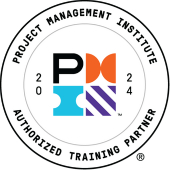Agile is an iterative software development approach where an integrated team from across the stakeholder community work together to evolve the development of the project’s software product. This is considerably different from the traditional waterfall or predictive development effort where requirements are collected, the product designed, developed and tested in that order. Put simply, Agile does it “with them” instead of “to them”. Proponents of Agile follow the Agile Manifesto which states:
- Individuals and interactions over processes and tools
- Working software over comprehensive documentation
- Customer collaboration over contract negotiation
- Responding to change over following a plan
Reading the Manifesto you can easily see the progressive, innovative approach that Agile founders are promoting. Imagine expecting change instead of plans! The goal and objective is to develop software that meets sponsors expectations with rapid delivery of high quality software. This involves delivery of multiple versions or drafts of the software and iterate and adapt the software until all stakeholders are satisfied. I liken it to throwing darts at dart board and moving closer and closer to the target until you finally hit the bullseye. In the Agile world, you won’t be chastised for breaking the rules but encouraged too!
Some might say that Agile makes project management obsolete. Untrue, but project managers must evolve along with this innovative approach to software development. Project managers should rejoice at knowing that change and stakeholder management is designed right into the process. In addition, daily scrum sessions where team members communicate status and forecast completion of activities is a dream come true for project managers! No more demanding status and filtering through timesheets and team member status reports. It’s reported daily along with revised estimates. This naturally leads to cost and schedule forecasts, it’s all baked in!
Agile is a solid alternative to traditional software development methodologies! Project managers should be prepared to “get out of the way” and stop managing but start leading by motivating, communicating, supporting and reporting.

